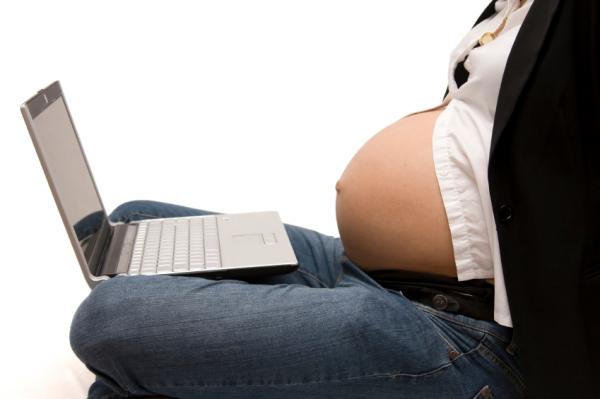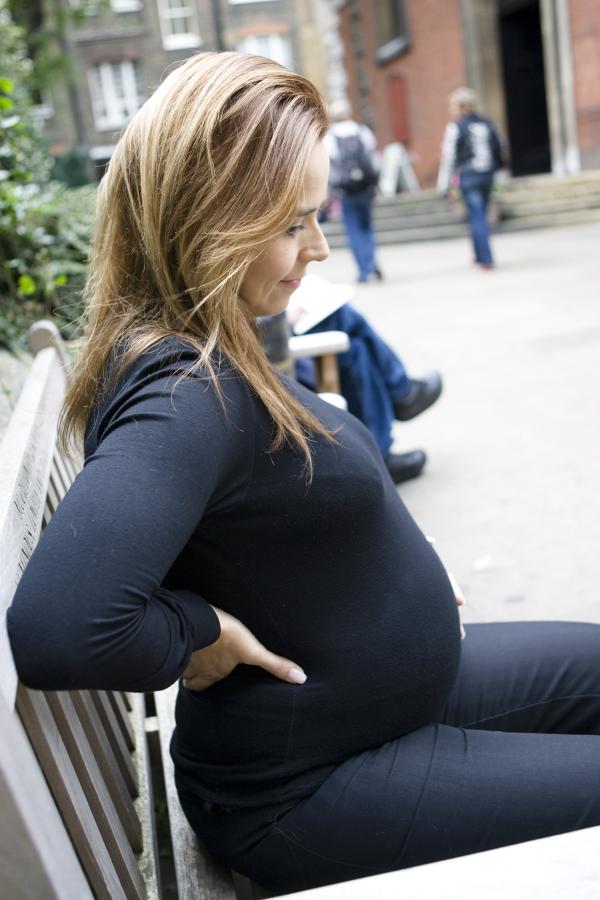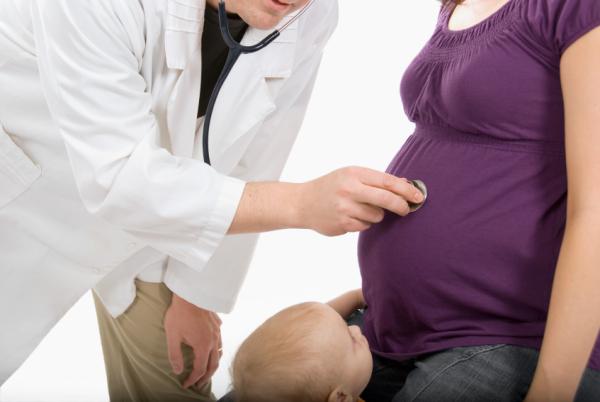You are 22 weeks pregnant. Your tailbone hurts and your back is stiff. Does this mean that you are suffering from pelvic girdle pain?
This question is taken from the Norwegian website barnimagen.com (child in womb). For years there has been an ongoing online debate on pelvic girdle pain (PGP). The discussion has been followed for one year and was used as the basis for a study.

Physiotherapist and sociologist Eva Haukeland Fredriksen has analysed how women discuss pelvic girdle pain and how they cope with it. She has compared her findings to how the health authorities and research present this condition.
According to her findings there is a big gap in how women on the Internet and the health authorities look at PGP. Whereas the Norwegian Guidelines for Pregnancy Care define PGP as a common complaint in pregnancy which on rare occasions may develop into a serious condition, pregnant women online are far more concerned with the fact that pelvic pain may develop into a serious health problem.
Dramatic stories
– Pelvic girdle pain is surrounded by dramatic stories and many women who experience vague symptoms join the Internet discussion worried that they are suffering from PGP, Fredriksen says. She is surprised at how worried the women are about PGP.
– I didn’t know how common it was, she comments.
The different views on PGP are also reflected in how pregnant women are met by their doctors, and the women online often state that they don’t feel that their problems are being taken seriously.
The study is presented in the latest edition of the international periodical Patient Education and Counseling. The debate Fredriksen has analysed is from 2005, but she believes her findings are equally relevant today. Fredriksen says that pelvic girdle pain is still a topic on the website and that pregnant women with health issues complain that they don’t feel they are being heard.
Self-medicalisation
The hormonal changes during a pregnancy affect the ligaments and joints in the pelvis. They become softer and the pelvic joints become more flexible. This is to make the pelvis able to expand during child birth. For most women this process takes place without any problems, but some experience pain and reduced mobility. The reason for this is still unclear.

Each year around 30 Norwegian women end up on disability pension due to prolonged and serious PGP. Although very few are badly affected Fredriksen says that many of the women on barnimagen.com are worried that their problems will become more severe if they don’t take them seriously.
– The women want to identify the symptoms at an early stage in order to get help and treatment as soon as possible, she explains.
The women turn to the Internet discussion for support. Many of them write about their own experiences and use these as the basis for the advice that they give others.
– The women on the website are engaging in a type of self-medicalisation and advice each other to deal with their condition by “listening to their bodies”, resting and asking for help and support, Fredriksen says.
Subjective pain
In contrast with the official view on PGP as a ”common complaint” many of the women who participate in the Internet discussion see this as an unpredictable and potentially disabling condition.
– Pelvic girdle pain belongs to a group of subjective conditions which amongst others include fibromyalgia. There is an ongoing debate as to how it should be diagnosed and international research is divergent, Fredriksen explains.
PGP has received an increasing amount of attention over the last years and even though this condition can be found among women on all continents it is also described as a cultural-specific phenomenon, with the Scandinavian countries reporting of the highest number of cases. Due to unclear classification criteria it is difficult to compare the prevalence of this condition with other countries.
– According to the Norwegian Guidelines for Pregnancy Care from 2005, which refers to recent research, the prevalence of pelvic girdle pain is 20 percent, of which five percent are considered serious cases. But in a Norwegian survey from 1989 42 percent of the women reported of pelvic pain during their pregnancy. Whether the woman is diagnosed with PGP or not depends on the criteria that are used and on what the doctors consider as normal complaints during a pregnancy.
Problems with being heard
According to Fredriksen the uncertainty with regard to the pain worries the women. Many of them are tired and over-worked and there is a continuing discussion as to how much they should endure before they take sick leave. In many cases the doctors don’t share their view on their health condition and they feel that they are not being heard when they talk about their problems. After all, they are just pregnant, and pregnancy is not a disease.
The women online respond by supporting each other as credible and responsible mothers.
– The welfare of the baby is used to justify that the women are taking it easy. They don’t want to be perceived as immoral women who take sick leave for no reason but as responsible mothers who are looking out for themselves and the baby, Fredriksen says.

She believes that the focus on PGP partly reflects the society’s lack of understanding for the needs of pregnant women and asks if this is a reaction to the contemporary discourse of pregnancy as a “normal condition”. Maybe it is too much to work full-time and have the main responsibility as care-givers at home while going through a pregnancy. The descriptions of PGP as an unpredictable condition may contribute to justify the needs of the woman to get more rest.
Fredriksen says it is worth noticing that around 60 percent of pregnant women in Norway are on sick leave for parts of their pregnancy even though this is considered a normal condition for women.
More emphasis on reproductive work
Fredriksen’s research reveals diverging views on PGP and a gap between the official policy on pregnancy health and the women’s own experiences. She wants policy-makers and the health care system to take these aspects into consideration.
– In my opinion, we must focus more on the reproductive work that a pregnancy is and be more attentive to pregnant women’s need for rest and support. This is a need that among other things is expressed in the Internet discussions.
Translated by: Vigdis Isachsen.
Eva Haukeland Fredriksen is a physiotherapist and sociologist. She is a lecturer at the Department of Physiotherapy in Bergen and does clinical work part-time. From January 2007 she has been a PhD student at the Faculty of Medicine at the University of Oslo,
Her doctoral project “Pregnant: Ill/healthy/strong/weak?”
(«Gravid: Syk/frisk/sterk/svak?») explores discourses related to pregnancy and pregnancy health and how these are reflected in different arenas. In the study quoted here she has looked at discussions on pelvic girdle pain on the website barnimagen.com.
The study is presented in the article "'Listen to your body' A qualitative text analysis of internet discussions related to pregnancy health and pelvic girdle pain in pregnancy" which is co-written with the supervisors Karen Marie Moland and Johanne Sundby. It is published in the November issue of the periodical Patient Education and Counseling.
The study is financed by The Norwegian Women’s Public Health Association (Norske Kvinners Sanitetsforening).